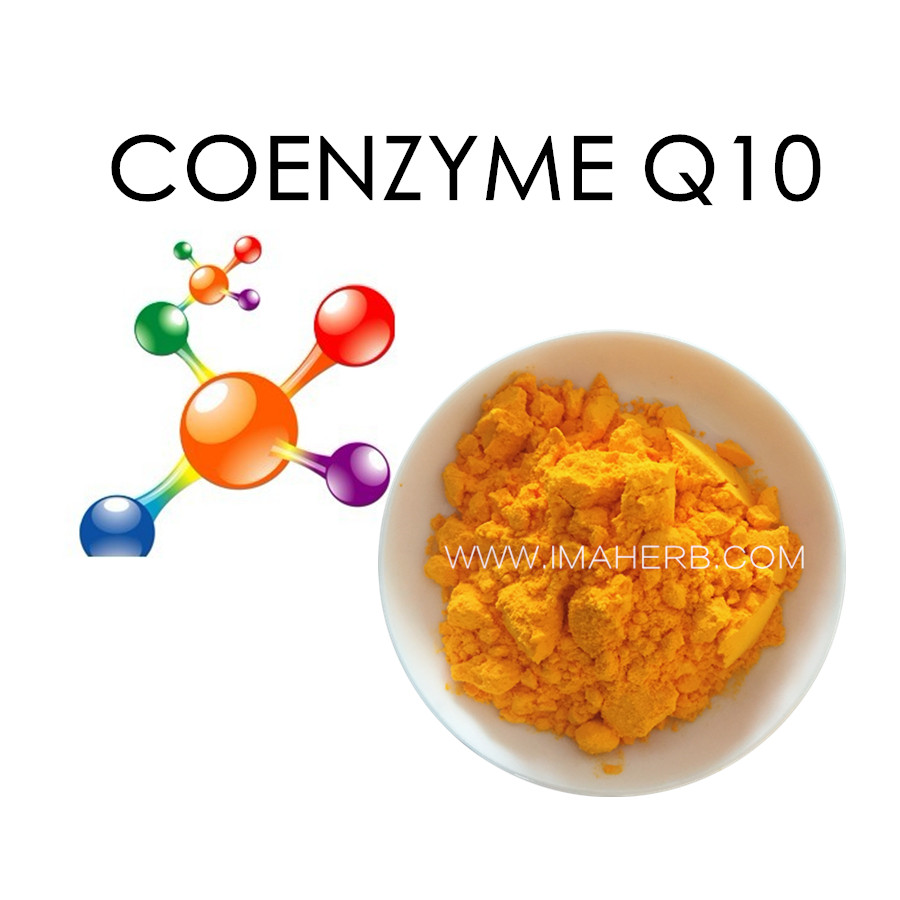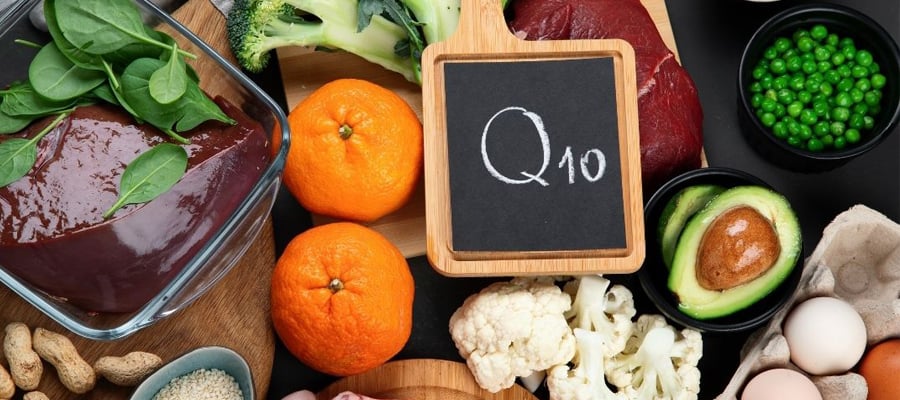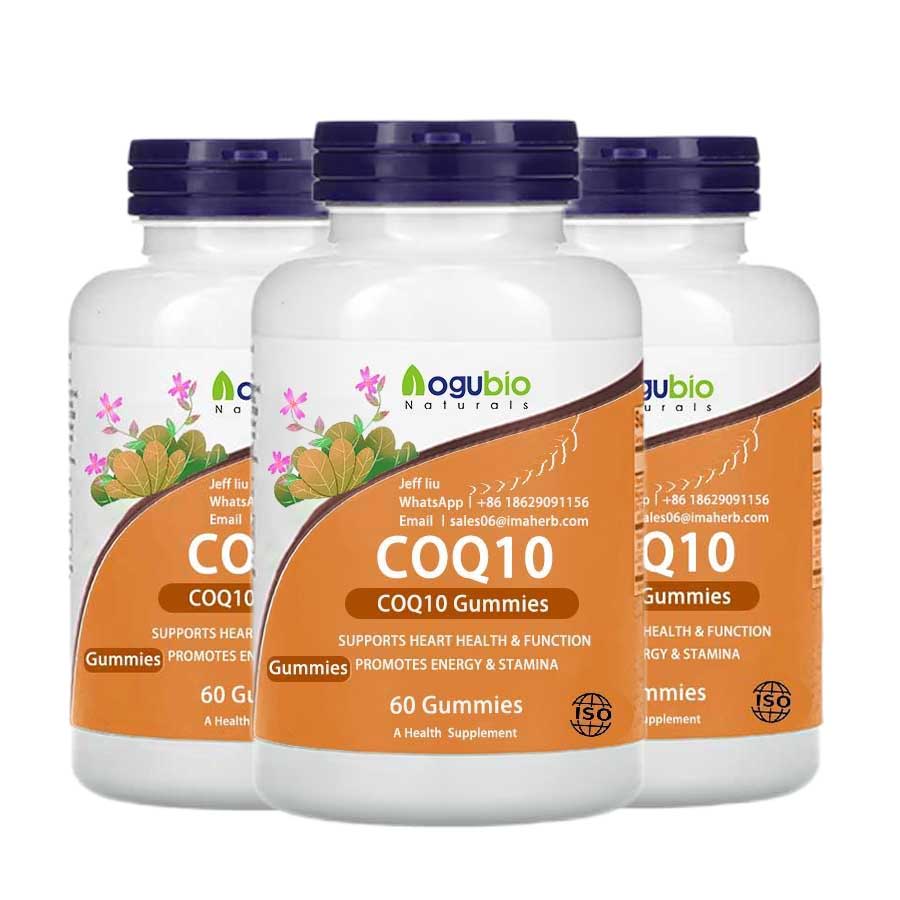Coenzyme Q10 (CoQ10) is a nutrient that occurs naturally in your body. CoQ10 is also in many foods you eat. CoQ10 acts as an antioxidant, which protects cells from damage and plays an important part in your metabolism.
What Are Some CoQ10 Benefits?
Although CoQ10 plays a key role in the body, most healthy people have enough CoQ10 naturally.
1. It may help treat heart failure
Some researchTrusted Source suggests that CoQ10 could improve treatment outcomes for people with heart failure.
One analysis of seven reviewsTrusted Source concluded that CoQ10 could be beneficial for managing heart failure, especially for those unable to tolerate other treatment methods.

Another review of 14 studiesTrusted Source found that people with heart failure who took CoQ10 supplements had a decreased risk of dying and a greater improvement in exercise capacity compared to those who took a placebo.
CoQ10 could also assist with restoring optimal levels of energy production, reducing oxidative damage, and improving heart function, all of which can aid the treatment of heart failure.
2. It could help with fertility
Female fertility decreases with age due to a decline in the number and quality of available eggs.
CoQ10 is directly involved in this process. As you age, CoQ10 production slows, making the body less effective at protecting the eggs from oxidative damage.
Supplementing with CoQ10 seems to help and may even reverseTrusted Source this age-related decline in egg quality and quantity.
Similarly, male sperm is susceptible to oxidative damage, which may result in reduced sperm count, poor sperm quality, and infertility.
Several studiesTrusted Source have concluded that supplementing with CoQ10 may improve sperm quality, activity, and concentration by increasing antioxidant protection.
3. It might help support healthy skin aging
Harmful elements like cellular damage or a hormonal imbalance can lead to reduced skin moisture and protection from environmental aggressors, as well as the thinning of the layers of the skin.
According to humanTrusted Source and animal studiesTrusted Source, applying CoQ10 directly to the skin may help reduce oxidative damage caused by UV rays and help decrease the depth of wrinkles and promoteantioxidant protection.
4. It could reduce headaches
Abnormal mitochondrial function can result in low energy in the brain cells and may contribute to migraine.
Since CoQ10 lives mainly in the mitochondria of the cells, it has been shownTrusted Source it may be beneficial for the treatment of migraine.
One review of five studiesTrusted Source found that CoQ10 may effectively reduce the duration and frequency of migraine in children and adults.
Another 2017 studyTrusted Source showed that CoQ10 might help reduce the frequency of headaches and make them shorter and less severe.
5. It could help with exercise performance
Abnormal mitochondrial function can reduce muscle energy, making it hard for muscles to contract efficiently and sustain exercise.
CoQ10 may help exercise performanceTrusted Source by decreasing oxidative stress in the cells and improving mitochondrial function.
One studyTrusted Source found that CoQ10 supplementation may have helped inhibit oxidative stress and markers of muscle and liver damage in adolescent elite swimmers during their competition phase.
Moreover, supplementing with CoQ10 may help reduce fatigueTrusted Source, which could also potentially improve exercise performance.
6. It may help with diabetes
Oxidative stress can induce cell damage. This can result in metabolic diseases like diabetes, as well as insulin resistance.
In a 2018 meta-analysisTrusted Source, CoQ10 has been suggested to improve insulin sensitivity and regulate blood sugar levels.
Another studyTrusted Source in people with diabetic neuropathy — a type of nerve damage that can occur in people with diabetes — found that taking 100 mg of CoQ10 daily for 12 weeks may have improved HbA1c levels and insulin resistance.
Not only that, but it also may have reduced markers of oxidative stress and harmful compounds, such as advanced glycation end products, compared to a placebo.
7. It might play a role in cancer prevention
According to some test-tube studiesTrusted Source, CoQ10 could block the growth of cancer cells. Interestingly, people with cancer have been shown to have lower levels of CoQ10.
Some olderTrusted Source studiesTrusted Source suggest low levels of CoQ10 may be associated with a higher risk of certain types of cancer, including breast and prostate cancer. Newer studiesTrusted Source have also suggested this with regard to lung cancer.
That said, the National Institutes of Health (NIH)Trusted Source states that CoQ10 has not been shown to be of value as a cancer treatment, so more research needs to be conducted before a definitive claim can be made.
8. It may be good for the brain
Mitochondrial function tends to decrease with age, which can lead to the death of brain cells and contribute to conditions like Alzheimer’s and Parkinson’s.
Unfortunately, the brain is very susceptible to oxidative stressTrusted Source due to its high fatty acid content and its high demand for oxygen.
This oxidative stress enhances the production of harmful compoundsTrusted Source that could affect memory, cognition, and physical functions.
9. It could protect the lungs
Increased oxidative damage in the lungs and poor antioxidant protection, including low levels of CoQ10, can result in lung diseases, such as chronic obstructive pulmonary disease (COPD) and asthma.
Furthermore, some older studiesTrusted Source have found that people with these conditions tend to have lower levels of CoQ10.
Another studyTrusted Source found that supplementing with CoQ10 and creatine — a compound found in muscle cells — may have improved functional performance, perception of shortness of breath, and body composition in people with COPD.
What foods Coenzyme Q10 is derived from

Fatty fish. Fatty fish such as trout, salmon, mackerel, and sardines contain CoQ10. Mackerel provides about 6.75 milligrams per 100 grams while trout provides 0.85 milligrams per 100 grams.
Meat. It’s not just animal organs that provide CoQ10. Because it lives throughout your body, it's present in all meat forms. Beef offers about 3.1 milligrams per 100 grams, chicken has 1.4 milligrams, and pork has 2.4 milligrams. Reindeer meat provides about 15.8 milligrams.
Soybeans. Soybean products such as tofu, soy milk, and soy yogurt are a valuable protein source. Soybeans also have many other vitamins and minerals, as well as CoQ10. Boiled soybeans have 1.2 milligrams per 100 grams. Other soy products contain lesser amount of CoQ10, with tofu at 0.3 milligrams and soy milk at 0.25 milligrams.
Vegetables. Along with many vitamins and minerals, a lot of vegetables contain CoQ10. Among them, broccoli has high CoQ10 content, weighing in at 0.6 to 0.86 milligrams per 100 grams.
Nuts and seeds. Along with protein, heart-healthy fats, and other important nutrients, nuts and seeds provide CoQ10. Pistachios have 2 milligrams of CoQ10 per 100-gram serving, peanuts have 2.6 milligrams, and sesame seeds have 1.7 milligrams.
Dosage

CoQ10 comes in two different forms — ubiquinol and ubiquinone.
Current studiesTrusted Source note that either ubiquinol or ubiquinone is acceptable for use as a supplement. No significant difference between the two was found in regards to absorption.
CoQ10 supplements are available in various doses, ranging from 30 to 600 mgTrusted Source.
Doses of 100–400 mgTrusted Source per day have been used in studies related to heart health, while doses ranging from 600–3,000 mgTrusted Source have been used for treating some neurodegenerative disorders.
However, taking 200 mgTrusted Source twice daily with food is considered the average dosage needed to maintain therapeutic blood levels of CoQ10 for most people.
Because CoQ10 is a fat-soluble compound, its absorption is slow and limited. However, taking CoQ10 supplements with food can help your body absorb it better than taking it without food. Also, soft-gel capsules have been confirmed to absorb more efficiently than other forms of CoQ10.
Additionally, some products offer a solubilized form of CoQ10, or a combination of CoQ10 and oils, to improve its absorption.
Post time: Oct-31-2023




